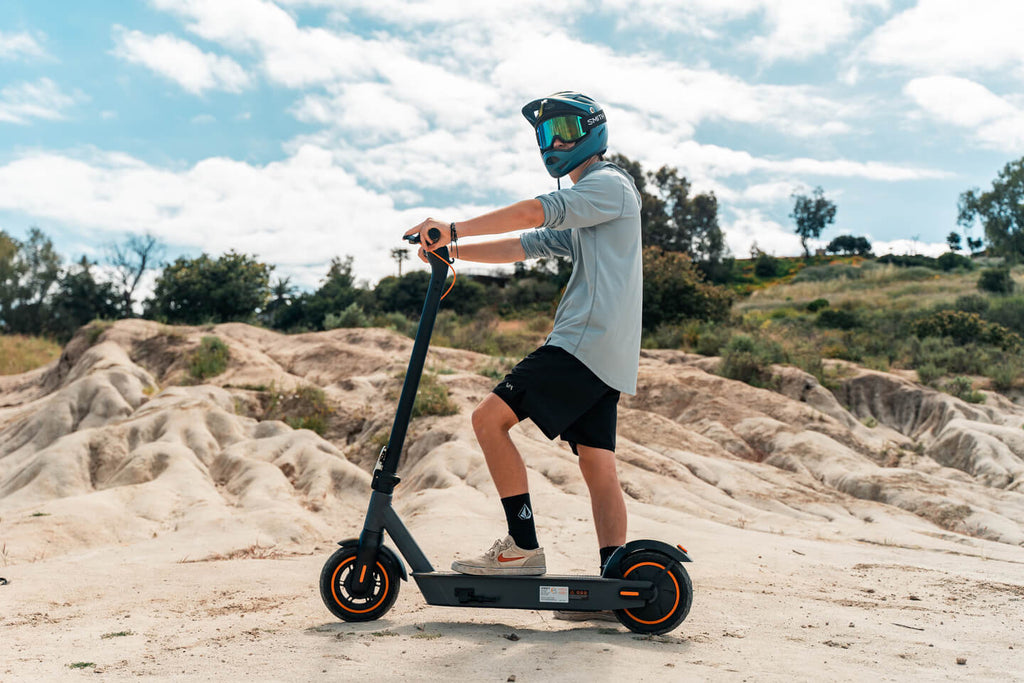Yes, electric scooters do need a license in many places. The legal requirements for electric scooters vary by location, so it’s important to check local regulations before riding one.
In some areas, a driver’s license, registration, and insurance are necessary, while others may have specific age requirements or restrict their use on certain roads. Properly understanding the rules and regulations will help ensure a safe and legal riding experience.
Electric scooters have gained popularity as a convenient and eco-friendly mode of transportation, but it’s essential to stay informed about the licensing and legal requirements to enjoy them responsibly. Failing to comply with local laws can result in fines or other penalties, so riders should always prioritize safety and legal compliance.
Do Electric Scooters Need A License
Electric scooters have rapidly gained popularity as a convenient and eco-friendly mode of transportation. However, the legal requirements for operating electric scooters can vary depending on the jurisdiction. In this article, we will explore the question, “Do electric scooters need a license?” and delve into the factors that determine the need for a license.
Understanding When A License Is Required
Whether or not a license is required to operate an electric scooter can hinge on several factors such as the speed and power of the scooter, the age of the rider, and the local regulations. In many areas, electric scooters fall into a gray area of the law, making it essential for riders to understand the specific requirements in their location.
Variations In Law By State And Country
State and country laws regarding electric scooters can vary significantly, leading to confusion for riders. While some regions may mandate a license for electric scooters, others might not have specific regulations in place. It is crucial for riders to research and adhere to the laws specific to their area to avoid potential legal issues.
Impact Of Electric Scooter Power And Speed
The power and speed of electric scooters can also impact whether a license is required. Some jurisdictions may exempt lower-powered scooters from licensing requirements, while others may impose strict regulations based on these factors. Understanding the power and speed limitations set forth by local authorities is essential for compliance with the law.
Assessing Local E-scooter Regulations
Understanding the regulations for electric scooters in your local area is essential before hitting the pavement. Different regions have varying rules and requirements for electric scooters. In this section, we will discuss how to find your local electric scooter laws, the significance of age, speed, and power limits, as well as the differences between private and public property rules.
How To Find Your Local Electric Scooter Laws
When it comes to finding information about electric scooter laws in your area, it’s essential to consult local government websites or reach out to the Department of Motor Vehicles. These sources will provide you with up-to-date information on regulations, licensing requirements, and any specific restrictions related to electric scooter use. Additionally, contacting local law enforcement agencies can also be a valuable resource for understanding the rules and regulations that apply to electric scooters in your community.
Significance Of Age, Speed, And Power Limits
Age, speed, and power limits for electric scooters can vary widely based on local regulations. It’s crucial to be aware of any age restrictions for operating electric scooters, as well as speed and power limitations that may affect where you can ride and under what conditions. Understanding these limits will help you comply with local laws and ensure safe and legal operation of your electric scooter.
Differences Between Private And Public Property Rules
When it comes to operating electric scooters, it’s important to distinguish between rules for private and public property. While laws regarding electric scooters on public roads and sidewalks are typically well-defined, regulations for riding on private property, such as residential communities, shopping centers, or business campuses, may vary. Always ensure you are familiar with the specific rules that apply to the area where you plan to ride your electric scooter.
Navigating Registration, Insurance, And Permits
The topic of registration, insurance, and permits for electric scooters often raises questions among riders. Understanding the requirements can help riders navigate the legal aspects of riding electric scooters. From when registration is necessary to insurance requirements and obtaining permits, it’s important to have a clear understanding of the obligations that come with riding an electric scooter.
When Registration Is Mandatory For Electric Scooters
In most regions, registration for electric scooters is mandatory. It’s typically required for identification and tracking purposes, ensuring that the scooter is legal and not stolen. Registration may involve providing the scooter’s serial number, model information, and the owner’s details. Regulations may vary by location, so it’s essential to check with local authorities to determine the specific requirements.
Insurance Requirements For Electric Scooter Riders
Insurance requirements for electric scooter riders are crucial to ensure safety and protection. Some regions may require liability insurance, which covers damages and injuries caused to others in the event of an accident. Additionally, some riders may opt for personal injury protection (PIP) coverage to safeguard themselves in case of injury while riding. It’s important to research and understand the insurance requirements in your area to comply with the necessary regulations.
Obtaining Permits And How They Affect Scooter Use
In certain areas, permits may be necessary to legally operate electric scooters. These permits may entail specific regulations and guidelines for riding, including where scooters can be ridden and parking guidelines. It’s important to acquire the necessary permits to avoid potential fines or penalties. Ensuring compliance with permit requirements can contribute to a safer and more enjoyable riding experience.
E-scooter Compliance: Safety And Legality
Electric scooters have become a popular mode of transportation for many urban commuters. However, before hitting the streets, riders need to ensure that their e-scooters comply with the necessary safety and legal standards. Understanding the requirements and consequences of non-compliance is crucial for a smooth and lawful ride.
Equipping Your Scooter To Meet Legal Standards
When it comes to electric scooters, it’s essential to equip your vehicle to meet legal standards. Ensure that your scooter complies with the specified regulations in your jurisdiction. This may include familiarizing yourself with the maximum speed limits and specific technical requirements such as lights and reflectors. Before taking your e-scooter on the road, ensure it meets the mandated standards for a safe and lawful ride.
Required Safety Gear For Legal Electric Scooter Operation
Operating an electric scooter safely and legally requires the use of mandatory safety gear. This may include a properly fitted helmet, protective clothing, and footwear. Compliance with safety gear requirements not only ensures a rider’s safety but also fulfills legal obligations, preventing penalties and potential accidents.
Penalties For Non-compliance
Failing to comply with e-scooter regulations can result in various penalties and fines, depending on the severity of the offense and local regulations. These penalties may include fines, revocation of riding privileges, and even legal action. By understanding and adhering to the legal requirements, riders can avoid potential penalties and enjoy a safe and lawful e-scooter ride.
The Ultimate Guide To Responsible E-scooter Use
Best Practices For Electric Scooter Riders
When navigating the streets with an electric scooter, there are some best practices every rider should adhere to. Always wear proper safety gear, including a helmet, to protect yourself in case of an accident. Follow all traffic laws and regulations, including yielding to pedestrians at crosswalks and adhering to speed limits. Be mindful of your surroundings, stay visible, and utilize hand signals to indicate turns and stops.
Importance Of Respecting Pedestrian Zones And Traffic Signals
Respecting pedestrian zones and traffic signals is essential for the safety of both riders and pedestrians. When riding an electric scooter, it’s crucial to avoid sidewalks and pedestrian-only areas. Instead, stick to designated bike lanes and roadways. Always obey traffic signals and signs, and yield to pedestrians at all times. By respecting these zones and signals, riders can contribute to a safer and more harmonious urban environment.
Community Awareness And Contributing To Policy Discussions
Being a responsible e-scooter user also involves contributing to the community and participating in policy discussions. Stay informed about local regulations and initiatives related to electric scooters, and engage in constructive conversations about their use. By raising awareness and advocating for responsible scooter use, riders can help shape policies that benefit both riders and the community at large.
Frequently Asked Questions Of Do Electric Scooters Need A License
Do Electric Scooters Need A License In The Us?
Yes, in many states, electric scooters require a driver’s license, registration, and insurance to operate legally on public roads.
Can You Ride An Electric Scooter Without A License?
In some states, you can ride an electric scooter without a license, but it may be limited to private property or specific conditions.
What Are The Legal Requirements For Electric Scooter Riders?
Legal requirements often include specific age limits, helmet laws, and adherence to traffic rules and regulations for operating electric scooters.
Are There Any Exceptions For Not Needing A License For Electric Scooters?
In some areas, there may be exceptions for not needing a license, such as when using electric scooters on private property or within designated areas.
Conclusion
It’s important to be aware of the legal requirements for electric scooters in your area. Obtaining a license may be necessary, so it’s essential to check local regulations. By staying informed and following the rules, you can enjoy the convenience of electric scooters safely and legally.

